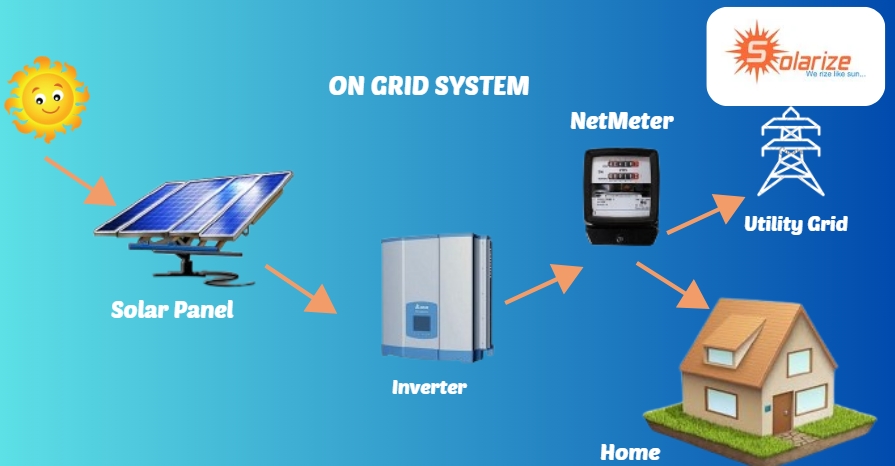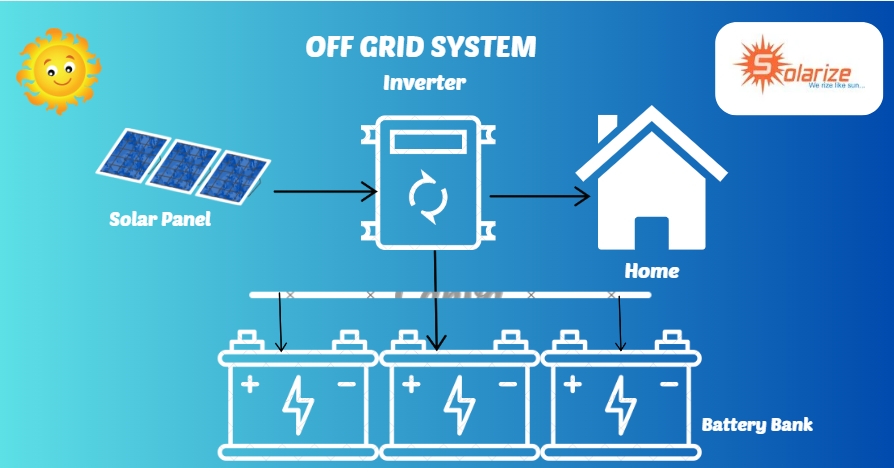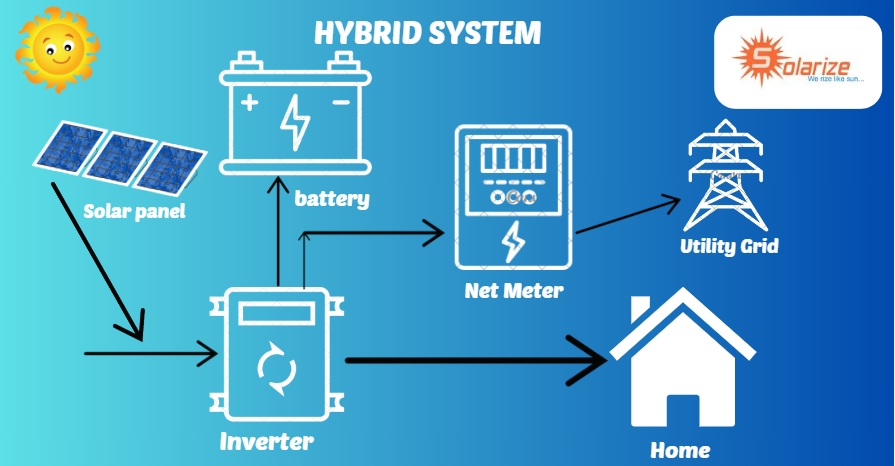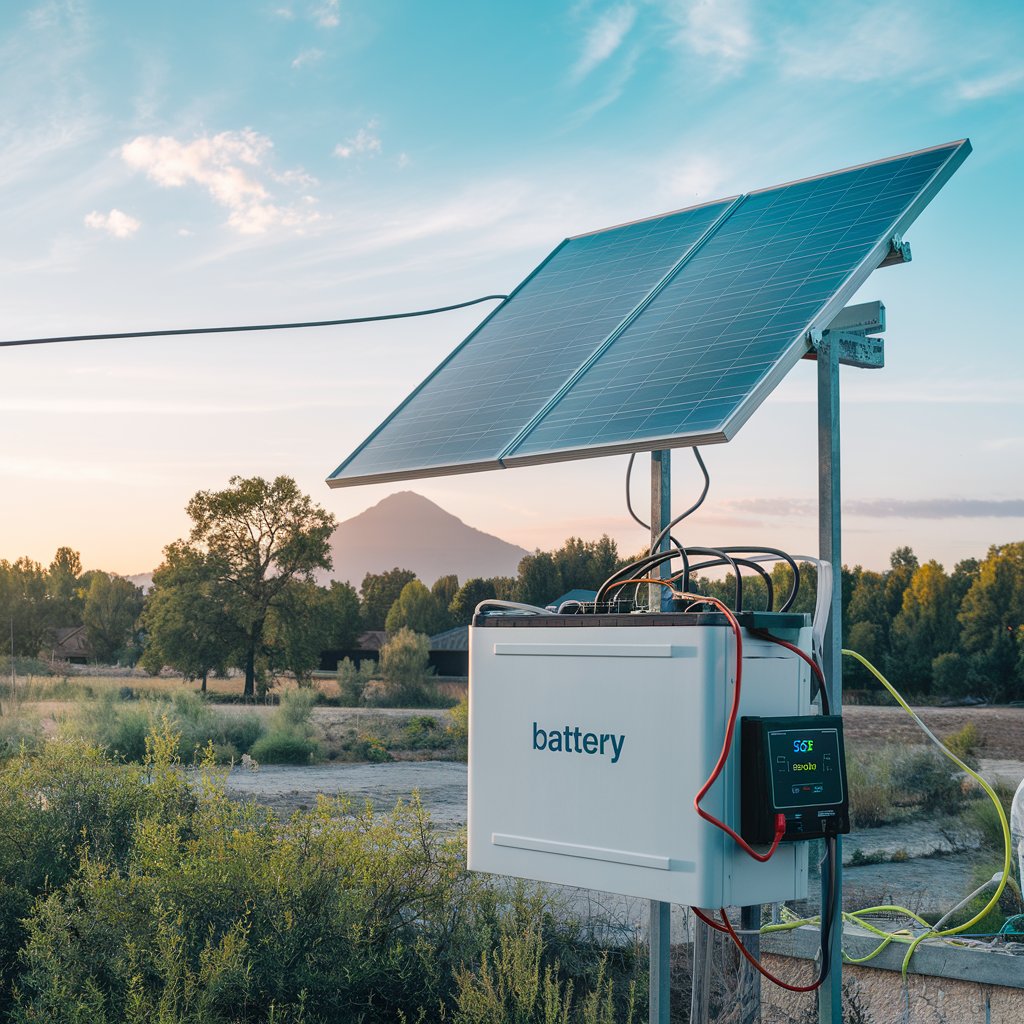The world’s electricity consumption is being revolutionized by solar energy, and solar systems are growing in popularity in India. Making educated selections about solar systems requires knowledge of their types, technology, and advantages, whether for households, companies, or industries. The various kinds of solar systems, the newest technology in solar power solutions, and the main advantages of solar energy adoption in India will all be covered in this blog.
1. Different Types of Solar Systems
Understanding the many kinds of solar systems on the market is crucial when thinking about solar energy. The trio of most prevalent kinds are:
On Grid Solar System

These systems are linked to the regional power infrastructure. You can obtain energy credits (net metering) when your solar panels generate more energy than is required and return the extra power to the grid. These systems work best in places where the grid is dependable.
Therefore, they can only function when an electricity grid is available. This solar power plant is excellent for people who want to save money on their electricity bills.
Through this system, people can transfer extra electricity to the grid. The bidirectional meter records this power transfer so that people can easily use power without paying any extra amount.
Off-Grid Solar Systems

These systems operate independently and are not linked to the electrical grid. To store the energy produced during the day for usage at night or on overcast days, they depend on batteries. Remote areas without grid access are ideal for off-grid solutions.
The off-grid solar system requires a solar panel, charge controller, battery bank, and a solar inverter for converting DC from solar panel to AC.
The battery bank stores extra power captured from sun rays during the day to ensure an uninterrupted power supply during the night or in the absence of sunlight.
Hybrid Solar Systems

The greatest features of both off-grid and on-grid systems are combined in hybrid systems. They have battery storage in addition to being grid linked. This implies that you can send more electricity to the grid while storing energy for backup. For locations where power outages are common, it’s a dependable choice.
Through this system, people can maximize their power consumption without increasing their electricity bills. This is the most efficient and sustainable option for generating and using electricity for future purposes.
2. Technologies of Solar Power Solutions
Solar power system technology is developing quickly. The main technologies utilized in solar power solutions are as follows:
Monocrystalline solar panels: are renowned for their great efficiency and durability. They are constructed from a single crystal structure. They are a high-end choice since they function well even in dim lighting.
Polycrystalline Solar Panels: Slightly less efficient than monocrystalline panels, polycrystalline panels are more cheap. Though they have a shorter lifespan, their cost-effectiveness keeps them in widespread use. They are composed of many silicon crystals.
Thin Film Solar Panel: Solar panels with thin films are created by covering a substrate, such as glass or plastic, with a thin coating of photovoltaic material. Because of their flexibility and light weight, they are perfect for certain uses, like solar roofing and portable solar systems.
Bifacial Solar Panels: These panels generate power from both sides, increasing the overall energy output. Bifacial technology is particularly effective in areas where solar radiation reflects off surfaces like rooftops or snow.
3. Top 5 Benefits of Solar Systems in India
1. Significant Energy Savings: Lowering electricity costs is one of the key benefits of solar power systems. By utilising solar energy, you can reduce your reliance on grid electricity by capturing free solar power.
2. Eco-Friendly and Sustainable: Solar systems contribute to a cleaner world by reducing carbon emissions. You may actively lessen the effects of climate change by utilizing renewable energy.
3. Low upkeep Costs: After installation, solar panels require little upkeep. To maintain your system operating at peak performance, all you need to do is do routine cleanings and checkups.
4. Government Incentives and Subsidies: To promote the use of solar energy, the Indian government offers a number of incentives, including tax breaks and subsidies. The cost of installing solar systems is lowered by these financial advantages.
5. Energy Independence: Solar power systems provide more energy independence, particularly in areas with regular power outages. You can have continuous power even during blackouts by installing a solar system, especially an off-grid or hybrid arrangement.
Conclusion: Why Invest in Solar Energy Today?
Investing in solar energy helps create a cleaner, greener planet by promoting environmental consciousness and achieving energy independence. Selecting a solar system is now simpler and more advantageous than ever thanks to the wide range of solar systems on the market today and the quick development of technology. The advantages are evident whether you choose an off-grid, hybrid, or on-grid system: cheaper energy expenses, a less carbon impact, and long-term savings.
FAQ'S
1. What is the capacity of solar panels required for an average Indian household?
The monthly electricity consumption of an average Indian household is 250 kWh. This estimates that an Indian household requires nearly 2.3 kW of electricity.
Therefore, to meet the domestic power needs of an average Indian household, people need to set up seven solar panels, each with 330 watts capacity.
2. What can damage solar panels?
Although Solar panels are sturdy enough to sustain most environmental damages, heavy dust or debris can scratch the surface of these panels, which affects their efficiency.
3. Do solar systems generate electricity on cloudy days?
The solar power system functions every time it receives sunlight. On cloudy days as well, whenever solar panels get sunlight, they start functioning by converting received charged particles to usable electricity.

